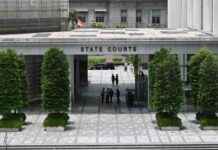Men Deceive Sultan Mosque with Fake Quotations Scheme
Three men in Singapore have been charged with running a deceptive scheme aimed at Sultan Mosque by submitting fake quotations for a digitalisation project. This plan was concocted to enhance the appeal of a company’s bid. The quartet involved in this deceitful act includes Mohamad Daud A Rahim, Mohd Nasir Mohd Sairi, Mohd Nasral Awang, and Mohd Zairil Ismail, who were charged on Tuesday, December 31.
Fake Quotations Submission
Daud, the director of Qirom Consulting, allegedly instigated Nasir and Nasral, directors of Fatiin Multimedia and Onaga Sys, respectively, to issue false quotations from their companies. Nasir falsified a quotation for S$24,900 in August and September 2022, while Nasral did the same with a fake quotation for S$56,000 in October 2022. These fake quotations were then submitted to Sultan Mosque by Daud to make Qirom’s bid seem competitive.
Deception Unveiled
The Corrupt Practices Investigation Bureau (CPIB) revealed that Daud faces charges of abetting the falsification of accounts and corruption, while Nasir and Nasral were charged with abetting the falsification of accounts. Additionally, Zairil, a senior manager with the Mosque-Madrasah-Wakaf Shared Services, came under investigation by MUIS in June 2023.
Lies and False Information
During the probe, Zairil allegedly lied to a MUIS deputy director about his connections to Qirom, claiming he had no personal or financial interest in the company and never received any payments from them. He now faces a charge of providing false information to a public servant, with potential implications for the investigation into his ties to Qirom. Furthermore, Zairil is also charged with possessing pepper spray without a license.
Consequences of Corruption
The penalties for corruption, falsifying accounts, and providing false information to a public servant are severe, including imprisonment, fines, or both. CPIB emphasized the importance of organizations implementing robust procedures in areas like procurement and internal audit to prevent corrupt acts by their employees.
In conclusion, this case serves as a reminder of the consequences of fraudulent practices and the necessity of upholding integrity in business dealings to maintain trust and transparency within the community.


























